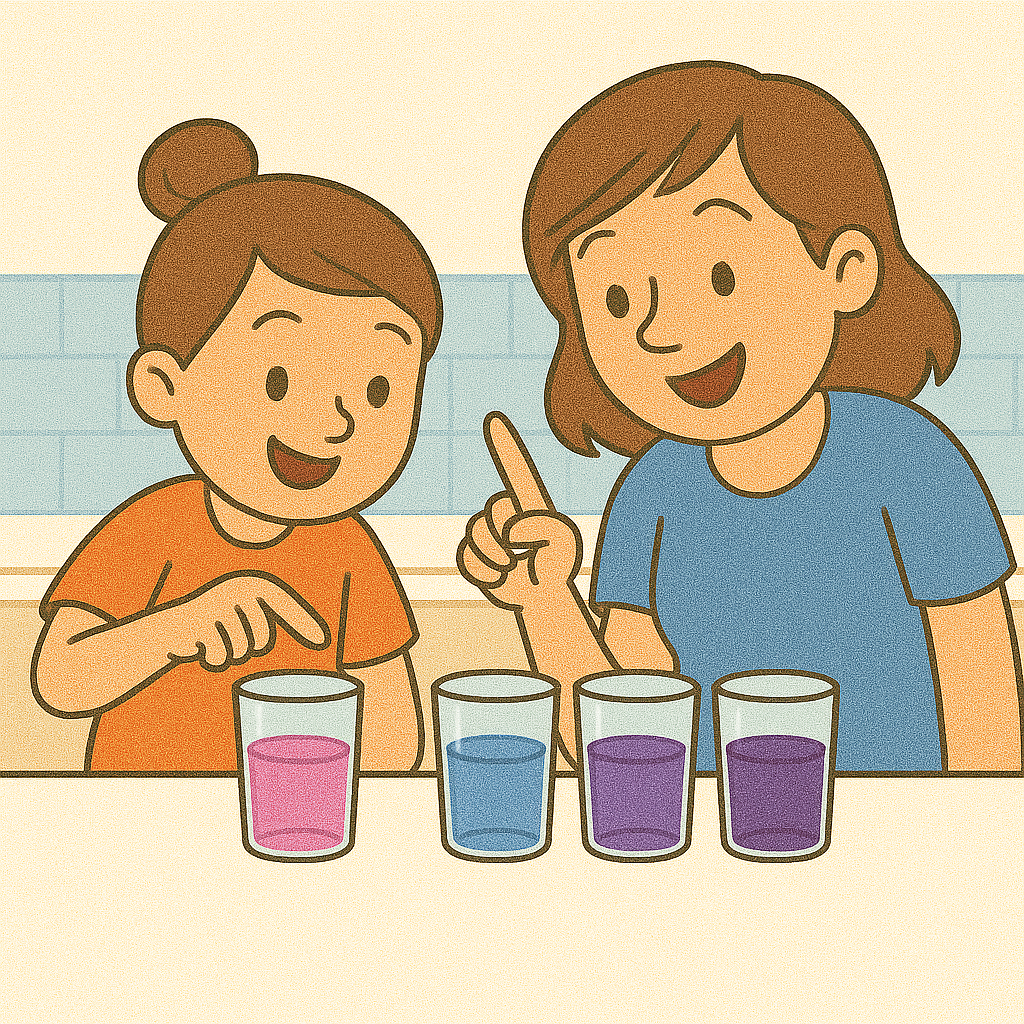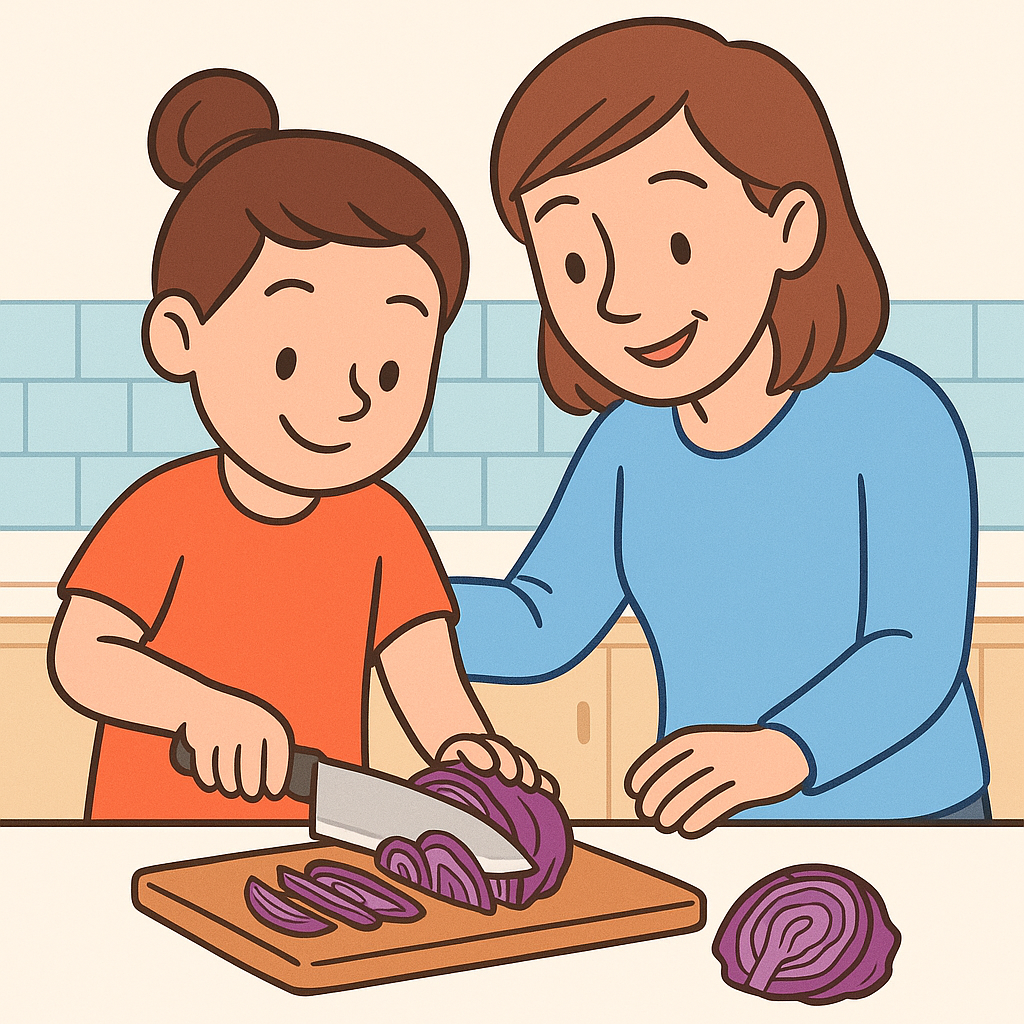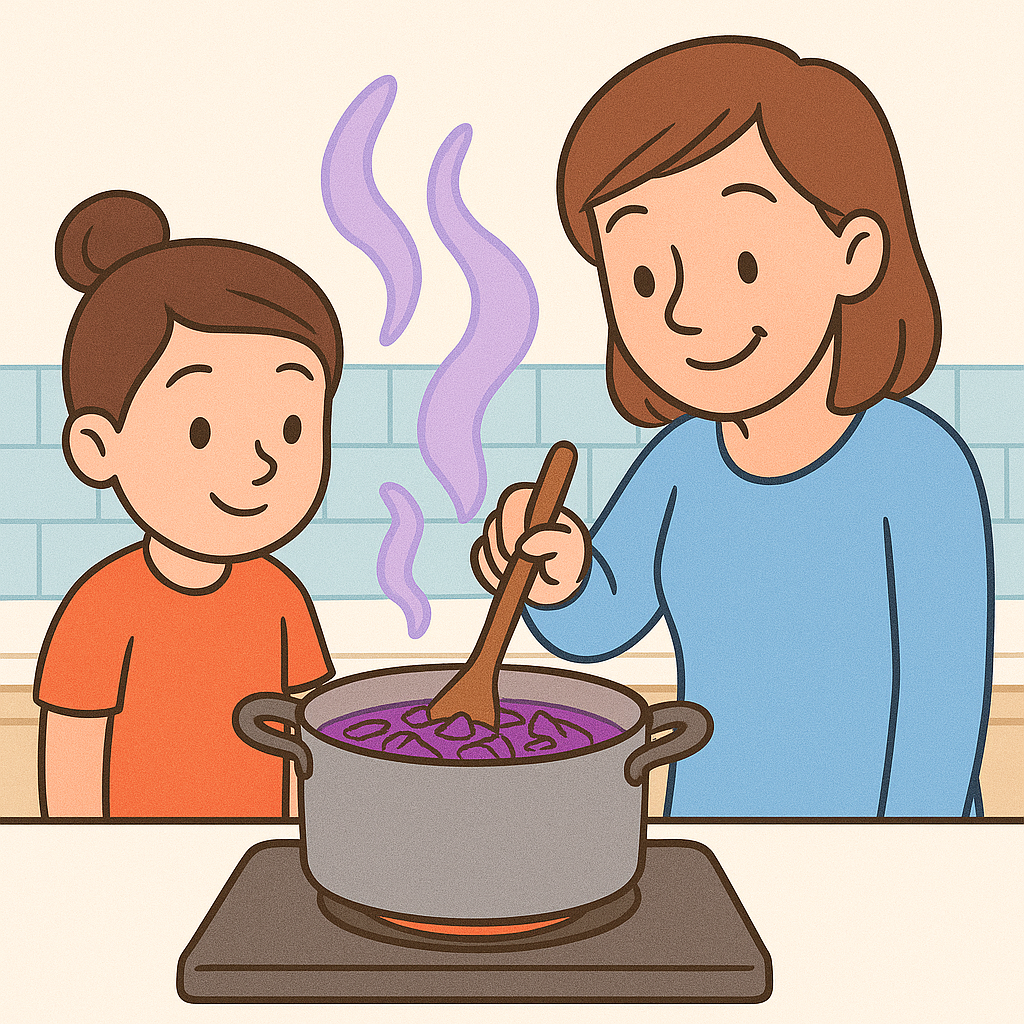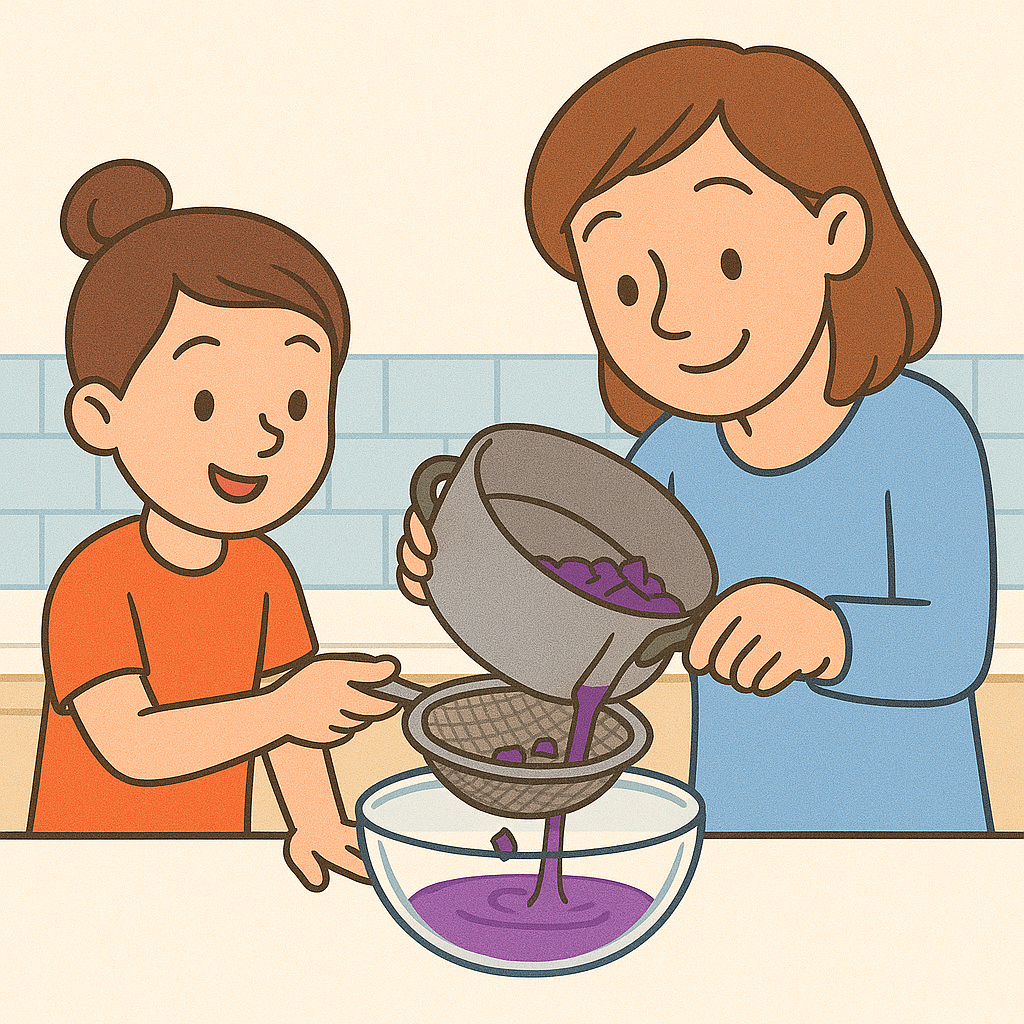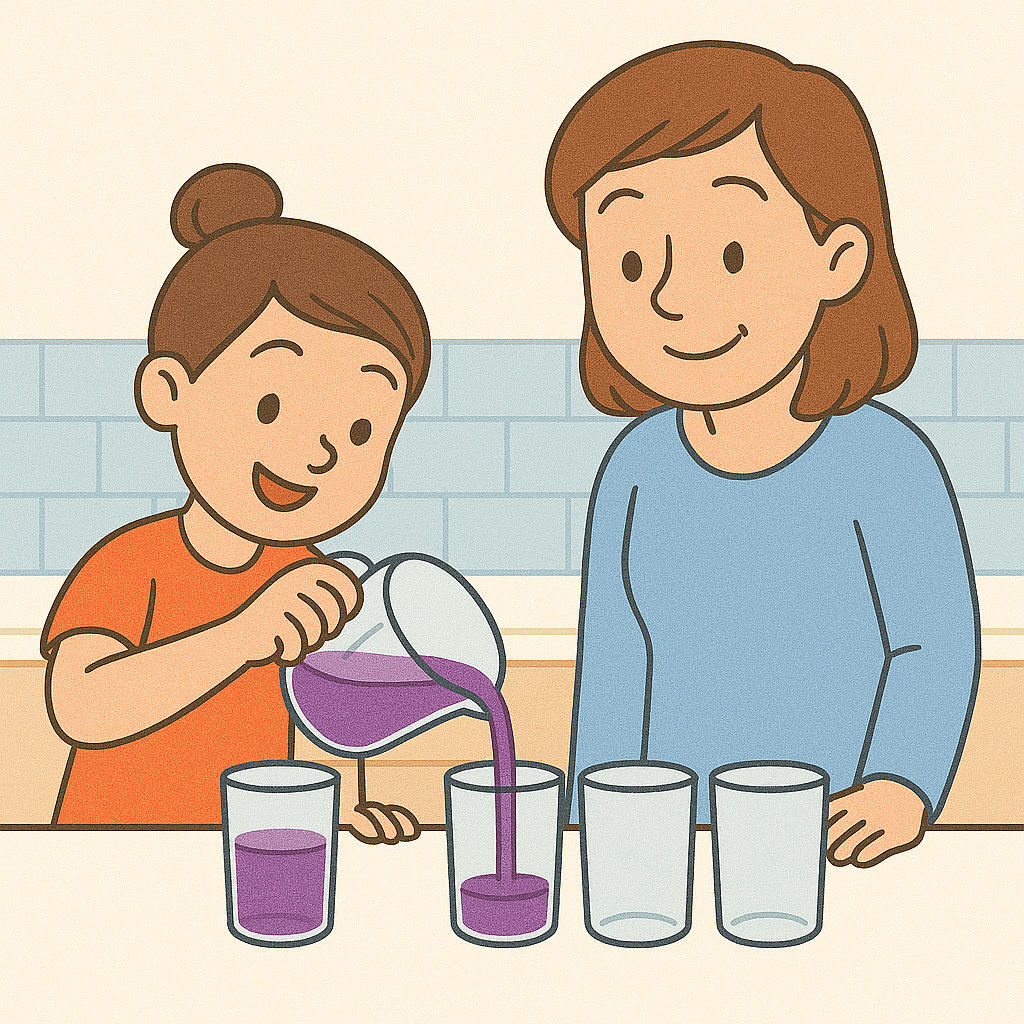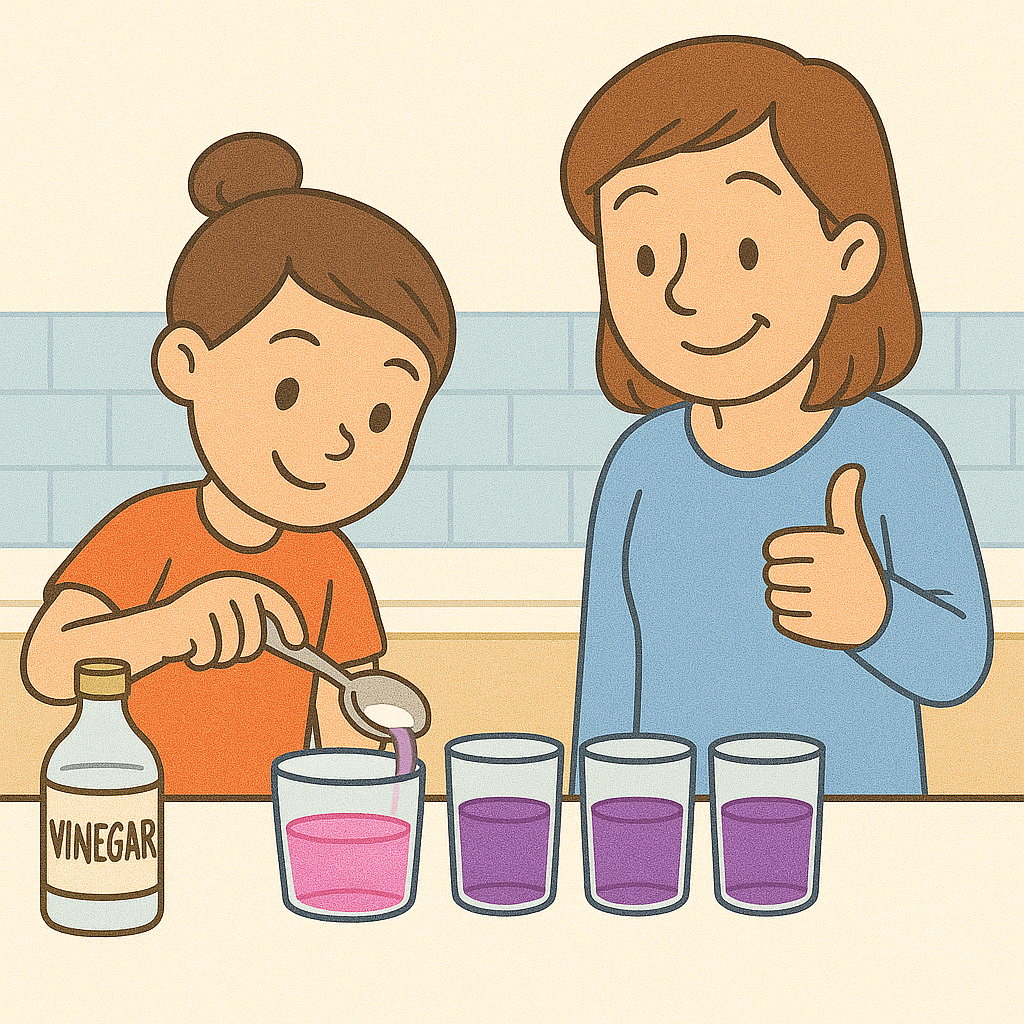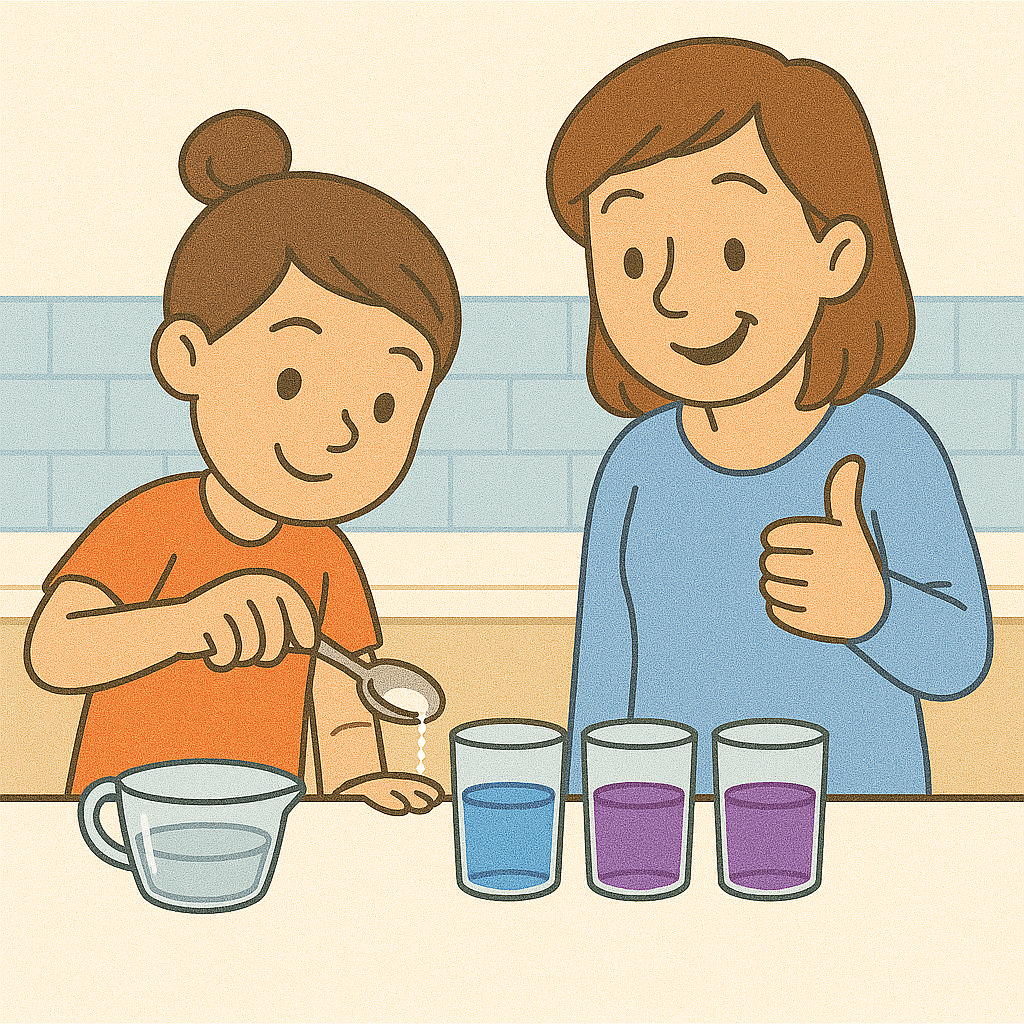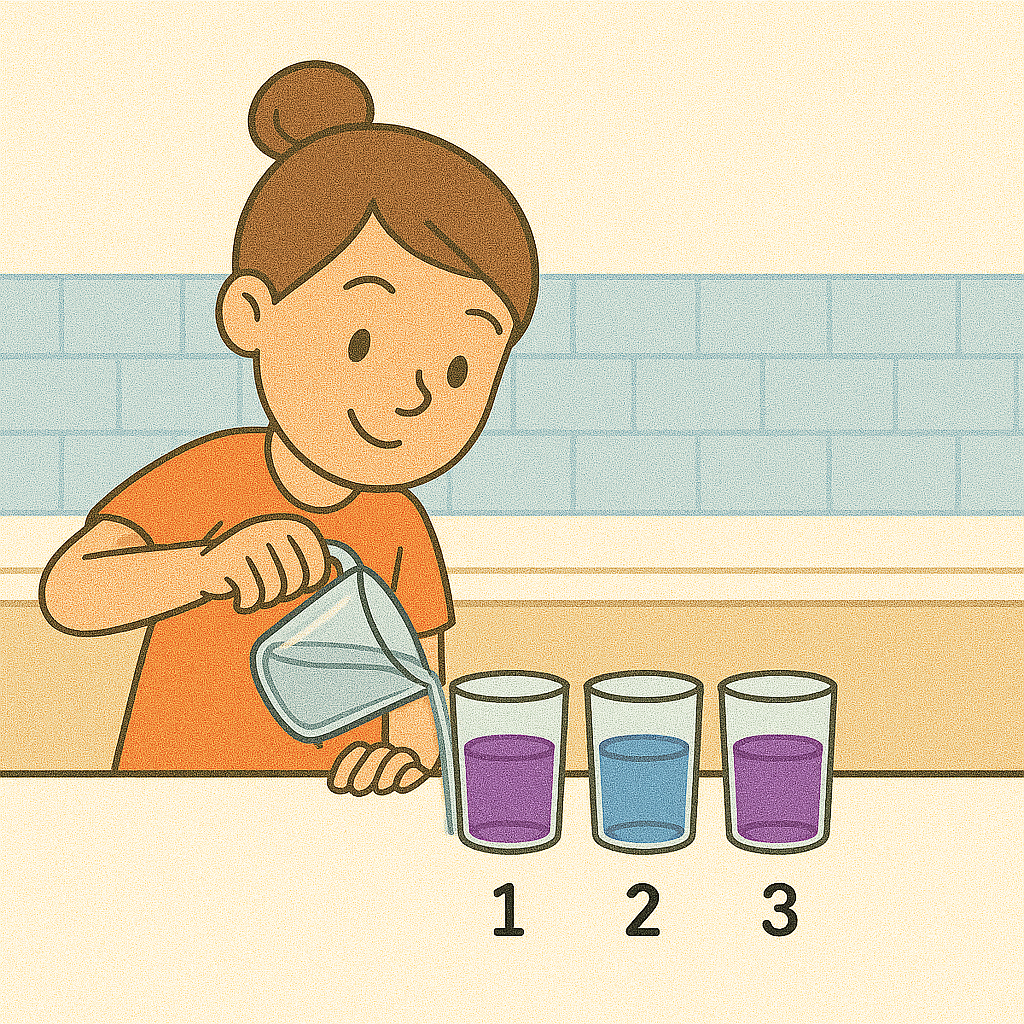 Color Changing Cabbage Juice:
Color Changing Cabbage Juice:
Easy Science Experiment for Kids
Discover the magic of color-changing chemistry with this fun, safe, and educational experiment for grades K–3! Learn how red cabbage juice can act as a natural pH indicator, changing color to reveal acids and bases in your kitchen. Great for classrooms, homeschoolers, and curious kids.
Easy Science Experiment for Kids
Experiment Details
- Grade Level: Kindergarten–3rd Grade
- Topic: Acids & Bases, Natural Indicators
- Estimated Time: 20–30 minutes
- Mess Factor: Low (supervision recommended for boiling water)
What You’ll Need
- 1 small head of red cabbage
- 4 cups water
- 4 clear cups or bowls
- 1 tablespoon vinegar (or lemon juice)
- 1 tablespoon baking soda dissolved in 1/2 cup water
- 1/2 cup plain water
- Spoon for stirring
- Strainer or sieve (optional)
Step-by-Step Instructions (with Pictures)
-

1. With an adult’s help, chop the red cabbage into small pieces. -

2. Place the cabbage pieces in a pot, add 4 cups of water, and boil for about 10 minutes until the water turns deep purple. -

3. Let the juice cool, then strain it into a bowl to remove the cabbage pieces. -

4. Pour about 1/4 cup of the purple cabbage juice into each of the four clear cups or bowls. -

5. Add 1 tablespoon of vinegar (or lemon juice) to the first cup and stir gently. -

6. Add 1 tablespoon of baking soda solution to the second cup and stir gently. -

7. Add 1/2 cup of plain water to the third cup. This is your control sample. -

8. Leave the fourth cup with just cabbage juice to compare the colors. Observe and discuss any color changes in each cup!
How Does the Cabbage Juice Experiment Work?
Red cabbage is packed with special pigments called anthocyanins that react to acids and bases. When you add an acid (like vinegar or lemon juice), the juice turns pink or red. When you add a base (like baking soda), it turns blue or green. Plain water keeps it purple, showing it’s neutral. This experiment is a fun and visual way for kids to explore the concept of pH and chemical indicators.
- Acids: Vinegar/lemon juice turn the juice pink or red
- Bases: Baking soda solution turns it blue or green
- Neutral: Plain water stays purple
Learning Objectives
- Learn about acids and bases using safe, natural ingredients
- Practice measuring and mixing liquids
- Observe and describe color changes
- Make simple scientific predictions and conclusions
Teacher & Parent Tips
- Prepare the cabbage juice ahead of time for faster setup.
- Encourage kids to use their own words to describe the colors.
- Discuss why some liquids change color while others do not.
- Supervise all cutting and boiling steps closely.
Standards Alignment
NGSS K-ESS3-1: Use a model to represent the relationship between the needs of different plants or animals and the places they live.
NGSS K-2-ETS1-1: Ask questions, make observations, and gather information about a situation people want to change to define a simple problem.
Printable Worksheet
Want a ready-to-use printable version for your class or homeschool?
Frequently Asked Questions
Yes! Red and purple cabbage are the same for this experiment.
Absolutely—just make sure an adult helps with the cutting and boiling.
That means you’ve added a base, like baking soda.
It’s safe to pour down the drain—everything is food-safe.
Related Experiments
Share Your Results!
Did you try this experiment? Share your photos or feedback below!
⭐ What Parents & Teachers Are Saying
Recent Feedback
There are no reviews yet. Be the first one to write one.

